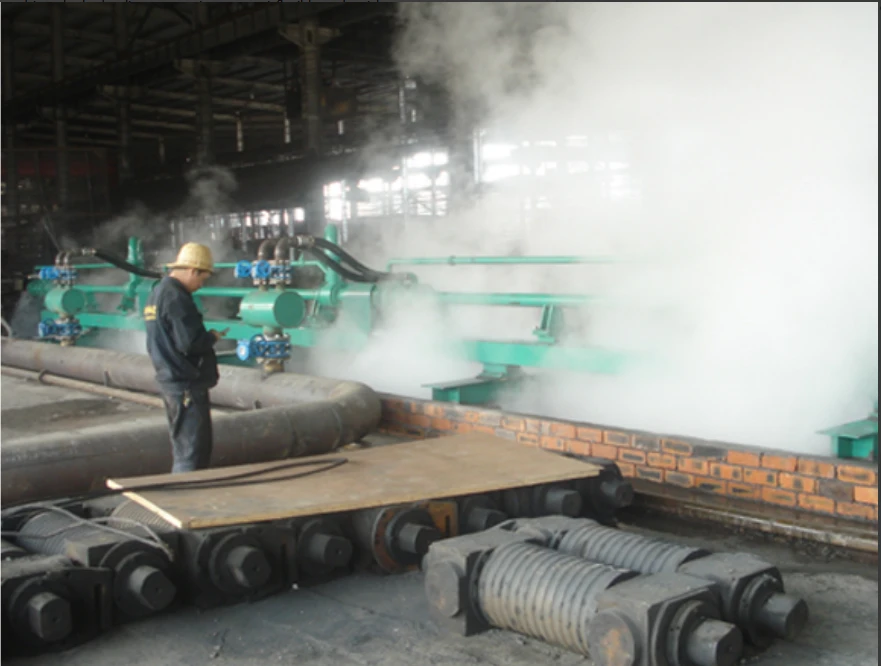
Water Quenching Process: Fast, Uniform Cooling for Metals
water quenching process, water quenching, water quenching device is a key solution in the manufacturing industry, specifically within Special Equipment Manufacturing Industry and Manufacturing of metallurgical specialized equipment. This article explores how Beijing Yang Wang Li Xin Sci&Tech Co.,Ltd. supports professionals with durable, high-performance products, and explains why this product is an ideal choice for businesses in these sectors.

Table of Contents
- water quenching process, water quenching, water quenching device Overview
- Benefits & Use Cases of water quenching process, water quenching, water quenching device in Manufacturing of metallurgical specialized equipment
- Cost, Maintenance & User Experience
- Sustainability & Market Trends in manufacturing
- Conclusion on water quenching process, water quenching, water quenching device from Beijing Yang Wang Li Xin Sci&Tech Co.,Ltd.
Water quenching process, water quenching, water quenching device Overview
The water quenching process is the controlled extraction of heat from hot-rolled bars, wire rod, and special profiles using engineered water jets to achieve targeted microstructures and mechanical properties. In metallurgical specialized equipment, a high-performance water quenching device integrates pressure-controlled manifolds, laminar nozzles, instrumentation, and closed-loop automation to deliver uniform cooling and repeatable results. Beijing Yang Wang Li Xin Sci&Tech Co.,Ltd. designs water quenching systems for bar and wire mills with modular headers, variable flow/pressure control, and inline temperature feedback (e.g., pyrometers) to stabilize hardness, tensile strength, and ductility across heats.
Typical configurations include multi-zone spray rings, 0.2–1.5 MPa adjustable pressure ranges, precision flow metering, and robust stainless-steel constructions to resist scale and corrosion. A representative case in bar production shows that, by pairing precise water quenching with controlled self-tempering, mills can reach higher strength classes without alloy cost increases, while maintaining elongation and weldability. As a reliable manufacturer, Beijing Yang Wang Li Xin Sci&Tech Co.,Ltd. provides engineered-to-order systems that align with line speeds, product sizes, and metallurgy requirements common to rebar, round bar, and wire rod operations.
Benefits & Use Cases of water quenching process, water quenching, water quenching device in Manufacturing of metallurgical specialized equipment
In metallurgical equipment manufacturing, the water quenching process is pivotal for Thermo-Mechanical Treatment (TMT) of rebar, controlled quenching of wire rod, and tailored cooling of alloy and carbon steels. The right water quenching device enables mills to fine-tune heat extraction for diameter changes, rolling speed variations, and chemistry fluctuations, ensuring consistent product properties and straightness. For rebar, precise quench intensity followed by self-tempering helps achieve high strength with good bendability; for wire rod, controlled gradients reduce surface cracking risk and support downstream drawing performance.
Beijing Yang Wang Li Xin Sci&Tech Co.,Ltd. designs systems with multi-zone control, quick-change nozzle banks, and real-time pressure/flow feedback, providing competitive advantages in quality stability and throughput. Integrated automation adjusts quench intensity based on billet temperature or rolling pace, minimizing operator intervention and scrap. Combined with advanced water treatment (filtration, scale removal, and recirculation), these solutions help mills cut water consumption, safeguard pumps and nozzles, and maintain consistent spray patterns—key differentiators for B2B decision makers seeking predictable output and lower operating risk.
Cost, Maintenance & User Experience
Total cost of ownership centers on reliability, water stewardship, and product yield. Beijing Yang Wang Li Xin Sci&Tech Co.,Ltd.’s water quenching device uses rugged manifolds, anti-clogging nozzle designs, and protected instrumentation to extend service intervals. Closed-loop recirculation with staged filtration reduces fresh water intake and scale-related wear, lowering consumables and downtime. For many mills, the ROI is driven by higher yield strength at lower alloy additions, improved length uniformity, and reduction of off-spec lots—delivering payback measured in production cycles rather than years.
Maintenance is streamlined through accessible header layouts, pressure differential monitoring for filter status, and guided cleaning routines. Users report smoother transitions across product sizes thanks to recipe-based control, with historical data improving setup times and first-bar quality. B2B stakeholders value not only the durability of the system but also the clarity of diagnostics and spare-part commonality across zones, which shortens MTTR and sustains OEE even under demanding schedules.
Sustainability & Market Trends in manufacturing
Steelmakers and metallurgical equipment builders face rising expectations on decarbonization, water conservation, and compliance. A modern water quenching process supports sustainability through recirculation loops, efficient filtration, and heat rejection strategies that minimize discharge and water make-up. Aligning with environmental management frameworks, mills increasingly favor closed-circuit designs that reduce wastewater risk and enhance regulatory compliance. Digital oversight—via PLC/SCADA and data logging—further enables energy audits and continuous improvement.
Market trends point to smarter quench control, data-driven setpoints, and integration with rolling mill MES for adaptive cooling. Beijing Yang Wang Li Xin Sci&Tech Co.,Ltd. engineers systems with forward-looking capabilities: scalable automation, sensor integration, and provisions for water quality monitoring. This eco-conscious approach helps customers curb resource intensity while maintaining metallurgical targets, positioning their operations for growth in regions where water and energy constraints shape investment decisions.
Conclusion on water quenching process, water quenching, water quenching device from Beijing Yang Wang Li Xin Sci&Tech Co.,Ltd.
The water quenching process—enabled by a robust, automated water quenching device—remains essential for achieving precise mechanical properties in bar and wire production. Beijing Yang Wang Li Xin Sci&Tech Co.,Ltd. delivers durable, high-performance systems that improve yield, stabilize quality, and optimize resource use across the Special Equipment Manufacturing Industry and metallurgical equipment manufacturing.
Partner with a proven team for engineered solutions that fit your line, metallurgy, and sustainability goals. Contact us: email: Alley.wang@bjywlx.com. Visit our website: https://www.bjywlx.com
-
YWLX’s 1450mm Six-Hi Reversing Mill Goes Live in BangladeshNewsNov.24,2025
-
Adjusting Roll Gap in 6Hi Reversing Cold Rolling Mill for Thin StripNewsNov.13,2025
-
Quality Control Standards for Automatic Gauge Control in Strip RollingNewsNov.13,2025
-
Effect of Skin Pass Rolling on Metal DuctilityNewsNov.13,2025
-
Key Components of a Modern TempermillNewsNov.13,2025
-
Common Wear Patterns of Work Roll in Tandem Cold Mill OperationsNewsNov.13,2025
-
Revolutionary Skin Pass Rolling Technology for Enhanced Steel QualityNewsNov.04,2025










